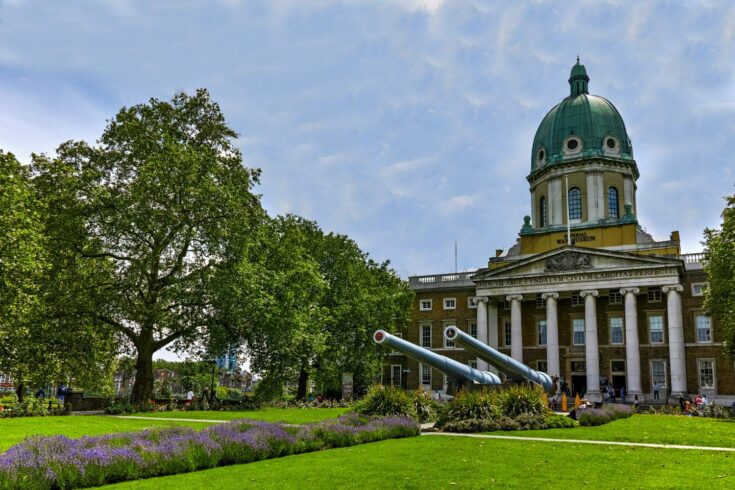The exhibition, in partnership with the UK Research and Innovation (UKRI) Arts and Humanities Research Council (AHRC), explores war’s many psychological dimensions, from the First World War to the present day.
It features over 150 objects and ephemera from the Imperial War Museum’s collections, offering insights into conflicts spanning more than 100 years, from the First World War to the war in Afghanistan.
The exhibition is enriched by ground-breaking research projects funded by UKRI.
Power of multidisciplinary research
AHRC Executive Chair Christopher Smith said:
From drone warfare to psychological warfare, from the medical discoveries arising from war to the lessons from the past for our contemporary world, this exhibition showcases not just the impact of war on the mind, but also the power of multidisciplinary research that melds arts and humanities with science.
I am delighted that AHRC has supported research to bring fascinating new insights to a wide audience and to inspire debate on a vital issue of our time.
Laura Clouting, Lead Curator of War and the Mind, said:
This exhibition delves into the deeply human stories behind conflict, offering a profound understanding of how war affects us all.
By showcasing personal artifacts and groundbreaking UKRI research, this exhibition illustrates how conflicts are fought within, and for our minds.
War and the Mind
War and the Mind opened on 27 September 2024 and runs for seven months.
Further information
The projects
Training the troops: British and Commonwealth armies, 1939 to 1945
Megan Hamilton
This project takes a deep dive into how the British Empire trained its armies from across the globe to fight effectively in World War Two.
It looks at how diverse recruits were taught to think and act like soldiers, and how cultivating a military mindset through training is critical to readiness to fight in battle.
Strange meetings: enemy encounters 1800 to 2020
Professor Holly Furneaux and Dr Matilda Greig
This project examines how our attitudes to our enemies changes when we meet them in times of war.
From famous truces, like the Christmas truce of 1914 in the trenches, to caring for prisoners of war and treating the wounded, it examines how ideas of otherness and familiarity shape our attitudes to our enemies.
War stories: composure and discomposure in the communication of British veterans’ experiences of the Falklands War
Dr John Beales
Dr John Beales explores how British troops felt, and coped, during the Falklands War.
How was individual fear expressed and controlled?
How did troops develop the resilience and stoicism to cope with hardship and threat?
Rediscovering the Bethlem Royal Hospital during the First World War
Rachel Ditchfield
While historical study often focuses on the impact of shellshock, Rachel Dritchfield’s project looks at the effect of the First World War on civilians on the home front who suffered from mental illness.
The war’s impact on their mental health, care and treatment, and on the Bethlem Royal Hospital where the Imperial War Museum is now based, are all examined.
Droned life: data, narrative, and the aesthetics of worldmaking
Dr Beryl Pong
This UK Research and Innovation (UKRI) Future Leaders Fellowships project probes the psychological effects of drone warfare.
It looks at:
- the politics and ethics of drone use
- how drones make us see our world differently
- how drones can create a sense of strange intimacy for their operators and constant, nagging fear for their potential victims
‘To dream as I have never dreamed before’: dreams in First World War literature and culture
Dr Chloe Nahum
This project examines the social and cultural importance of soldiers’ dreams in the First World War, including vivid accounts in diaries, letters, newspapers, posters and postcards.
It explores how the war changed how we interpret the meaning and significance of our dreams.

